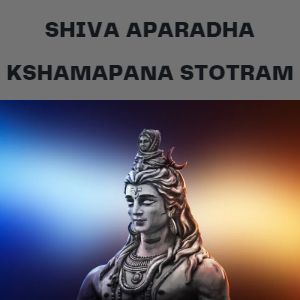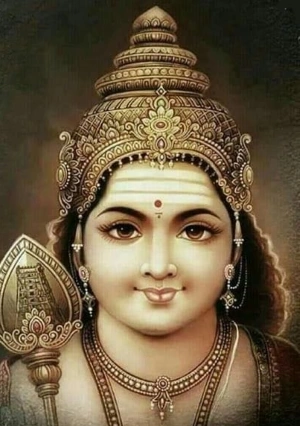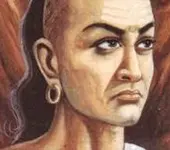Kanakadhara Stotra
अङ्गं हरेः पुलकभूषणमाश्रयन्ती
भृङ्गाङ्गनेव मुकुलाभरणं तमालम्।
अङ्गीकृताखिलविभूतिरपाङ्गलीला
माङ्गल्यदाऽस्तु मम मङ्गलदेवतायाः।
मुग्धा मुहुर्विदधती वदने मुरारेः
प्रेमत्रपाप्रणिहितानि गतागतानि।
माला दृशोर्मधुकरीव महोत्पले या
सा मे श्रियं दिशतु सागरसम्भवायाः।
आमीलिताक्षमधिगम्य मुदा मुकुन्दम्
आनन्दकन्दमनिमेषमनङ्गतन्त्रम् ।
आकेकरस्थितकनीनिकपक्ष्मनेत्रं
भूत्यै भवेन्मम भुजङ्गशयाङ्गनायाः।
बाह्वन्तरे मधुजितः श्रितकौस्तुभे या
हारावलीव हरिनीलमयी विभाति ।
कामप्रदा भगवतोऽपि कटाक्षमाला
कल्याणमावहतु मे कमलालयायाः।
कालाम्बुदालिललितोरसि कैटभारेः
धाराधरे स्फुरति या तडिदङ्गनेव ।
मातुः समस्तजगतां महनीयमूर्तिः
भद्राणि मे दिशतु भार्गवनन्दनायाः।
प्राप्तं पदं प्रथमतः किल यत्प्रभावात्
माङ्गल्यभाजि मधुमाथिनि मन्मथेन।
मय्यापतेत्तदिह मन्थरमीक्षणार्धं
मन्दालसं च मकरालयकन्यकायाः।
विश्वामरेन्द्रपदविभ्रमदानदक्षम्
मआनन्दहेतुरधिकं मुरविद्विषोऽपि ।
ईषन्निषीदतु मयि क्षणमीक्षणार्धम्
इन्दीवरोदरसहोदरमिन्दिरायाः।
इष्टा विशिष्टमतयोऽपि यया दयार्द्र-
दृष्ट्या त्रिविष्टपपदं सुलभं लभन्ते ।
दृष्टिः प्रहृष्टकमलोदरदीप्तिरिष्टां
पुष्टिं कृषीष्ट मम पुष्करविष्टरायाः।
दद्याद्दयानुपवनो द्रविणाम्बुधाराम्
अस्मिन्नकिञ्चनविहङ्गशिशौ विषण्णे ।
दुष्कर्मघर्ममपनीय चिराय दूरं
नारायणप्रणयिनीनयनाम्बुवाहः।
गीर्देवतेति गरुडध्वजसुन्दरीति
शाकम्भरीति शशिशेखरवल्लभेति।
सृष्टिस्थितिप्रलयकेलिषु संस्थितायै
तस्यै नमस्त्रिभुवनैकगुरोस्तरुण्यै।
श्रुत्यै नमोऽस्तु शुभकर्मफलप्रसूत्यै
रत्यै नमोऽस्तु रमणीयगुणार्णवायै।
शक्त्यै नमोऽस्तु शतपत्रनिकेतनायै
पुष्ट्यै नमोऽस्तु पुरुषोत्तमवल्लभायै।
नमोऽस्तु नालीकनिभाननायै
नमोऽस्तु दुग्धोदधिजन्मभूत्यै।
नमोऽस्तु सोमामृतसोदरायै
नमोऽस्तु नारायणवल्लभायै।
नमोऽस्तु हेमामबुजपीठिकाये
नमोऽस्तु भूमण्डलनायिकायै।
नमोऽस्तु देवादिदयापरायै
नमोऽस्तु शार्ङ्गायुधवल्लभायै।
नमोऽस्तु देव्यै भृगुनन्दनायै
नमोऽस्तु विष्णोरुरसि स्थितायै।
नमोऽस्तु लक्ष्म्यै कमलालयायै
नमोऽस्तु दामोदरवल्लभायै।
नमोऽस्तु कान्त्यै कमलेक्षणायै
नमोऽस्तु भूत्यै भुवनप्रसूत्यै।
नमोऽस्तु देवादिभिरर्चितायै
नमोऽस्त्वनन्तात्मजवल्लभायै।
सम्पत्कराणि सकलेन्द्रियनन्दनानि
साम्राज्यदानविभवानि सरोरुहाक्षि।
त्वद्वन्दनानि दुरिताहरणोद्यतानि
मामेव मातरनिशं कलयन्तु मान्ये।
यत्कटाक्षसमुपासनाविधिः
सेवकस्य सकलार्थसम्पदः।
सन्तनोति वचनाङ्गमानसै-
स्त्वां मुरारिहृदयेश्वरीं भजे।
सरसिजनिलये सरोजहस्ते
धवलतमांशुकगन्धमाल्यशोभे।
भगवति हरिवल्लभे मनोज्ञे
त्रिभुवनभूतिकरि प्रसीद मह्यम्।
दिग्घस्तिभिः कनककुम्भमुखावसृष्ट-
स्वर्वाहिनीविमलचारुजलप्लुताङ्गीम् ।
प्रातर्नमामि जगतां जननीमशेष-
लोकाधिनाथगृहिणीममृताब्धिपुत्रीम्।
कमले कमलाक्षवल्लभे
त्वं करुणापूरतरङ्गितैरपाङ्गैः।
अवलोकय मामकिञ्चनानां
प्रथमं पात्रमकृत्रिमं दयायाः।
देवि प्रसीद जगदीश्वरि लोकमातः
कल्याणगात्रि कमलेक्षणजीवनाथे।
दारिद्र्यभीतहृदयं शरणागतं माम्
आलोकय प्रतिदिनं सदयैरपाङ्गैः।
स्तुवन्ति ये स्तुतिभिरमूभिरन्वहं
त्रयीमयीं त्रिभुवनमातरं रमाम्।
गुणाधिका गुरुतरभाग्यभागिनो
भवन्ति ते भुवि बुधभाविताशयाः।
angam hareh' pulakabhooshanamaashrayantee
bhri'ngaanganeva mukulaabharanam tamaalam.
angeekri'taakhila-
vibhootirapaangaleelaa
maangalyadaa'stu mama mangaladevataayaah'.
mugdhaa muhurvidadhatee vadane muraareh'
prematrapaapranihitaani gataagataani.
maalaa dri'shormadhukareeva mahotpale yaa
saa me shriyam dishatu saagarasambhavaayaah'.
aameelitaakshamadhigamya mudaa mukundam
aanandakandamanimesham-
anangatantram .
aakekarasthitakaneenika-
pakshmanetram
bhootyai bhavenmama bhujangashayaanganaayaah'.
baahvantare madhujitah' shritakaustubhe yaa
haaraavaleeva harineelamayee vibhaati .
kaamapradaa bhagavato'pi kat'aakshamaalaa
kalyaanamaavahatu me kamalaalayaayaah'.
kaalaambudaalilalitorasi kait'abhaareh'
dhaaraadhare sphurati yaa tad'idanganeva .
maatuh' samastajagataam mahaneeyamoortih'
bhadraani me dishatu bhaargavanandanaayaah'.
praaptam padam prathamatah' kila yatprabhaavaat
maangalyabhaaji madhumaathini manmathena.
mayyaapatettadiha mantharameekshanaardham
mandaalasam cha makaraalayakanyakaayaah'.
vishvaamarendrapadavibhrama-
daanadaksham
maaanandaheturadhikam muravidvisho'pi .
eeshannisheedatu mayi kshanameekshanaardham
indeevarodarasahodaramindiraayaah'.
isht'aa vishisht'amatayo'pi yayaa dayaardra-
dri'sht'yaa trivisht'apapadam sulabham labhante .
dri'sht'ih' prahri'sht'akamalodara-
deeptirisht'aam
pusht'im kri'sheesht'a mama pushkaravisht'araayaah'.
dadyaaddayaanupavano dravinaambudhaaraam
asminnakinchanavihangashishau vishanne .
dushkarmagharmamapaneeya chiraaya dooram
naaraayanapranayinee-
nayanaambuvaahah'.
geerdevateti garud'adhvajasundareeti
shaakambhareeti shashishekharavallabheti.
sri'sht'isthitipralayakelishu samsthitaayai
tasyai namastribhuvanaikagurostarunyai.
shrutyai namo'stu shubhakarmaphalaprasootyai
ratyai namo'stu ramaneeyagunaarnavaayai.
shaktyai namo'stu shatapatraniketanaayai
pusht'yai namo'stu purushottamavallabhaayai.
namo'stu naaleekanibhaananaayai
namo'stu dugdhodadhijanmabhootyai.
namo'stu somaamri'tasodaraayai
namo'stu naaraayanavallabhaayai.
namo'stu hemaamabujapeet'hikaaye
namo'stu bhoomand'alanaayikaayai.
namo'stu devaadidayaaparaayai
namo'stu shaarngaayudhavallabhaayai.
namo'stu devyai bhri'gunandanaayai
namo'stu vishnorurasi sthitaayai.
namo'stu lakshmyai kamalaalayaayai
namo'stu daamodaravallabhaayai.
namo'stu kaantyai kamalekshanaayai
namo'stu bhootyai bhuvanaprasootyai.
namo'stu devaadibhirarchitaayai
namo'stvanantaatmajavallabhaayai.
sampatkaraani sakalendriyanandanaani
saamraajyadaanavibhavaani saroruhaakshi.
tvadvandanaani duritaaharanodyataani
maameva maataranisham kalayantu maanye.
yatkat'aakshasamupaasanaavidhih'
sevakasya sakalaarthasampadah'.
santanoti vachanaangamaanasai-
stvaam muraarihri'dayeshvareem bhaje.
sarasijanilaye sarojahaste
dhavalatamaamshuka-
gandhamaalyashobhe.
bhagavati harivallabhe manojnye
tribhuvanabhootikari praseeda mahyam.
digghastibhih' kanakakumbhamukhaavasri'sht'a-
svarvaahineevimala-
chaarujalaplutaangeem .
praatarnamaami jagataam jananeemashesha-
lokaadhinaathagri'hineem-
amri'taabdhiputreem.
kamale kamalaakshavallabhe
tvam karunaapooratarangitairapaangaih'.
avalokaya maamakinchanaanaam
prathamam paatramakri'trimam dayaayaah'.
devi praseeda jagadeeshvari lokamaatah'
kalyaanagaatri kamalekshanajeevanaathe.
daaridryabheetahri'dayam sharanaagatam maam
aalokaya pratidinam sadayairapaangaih'.
stuvanti ye stutibhiramoobhiranvaham
trayeemayeem tribhuvanamaataram ramaam.
gunaadhikaa gurutarabhaagyabhaagino
bhavanti te bhuvi budhabhaavitaashayaah'.
Recommended for you
Shiva Aparadha Kshamapana Stotram

aadau karmaprasangaat kalayati kalusham maatri'kukshau sthitam maam vinmootraamedhyamadhye kvathayati nitaraam jaat'haro jaatavedaah'. yadyadvai tatra....
Click here to know more..Skanda Stotram

shanmukham paarvateeputram kraunchashailavimardanam. devasenaapatim devam skandam vande shivaatmajam. taarakaasurahantaaram mayooraasanasamsthitam. sh....
Click here to know more..A major factor to be successful in debates and discussions
 Click here to know more..
Click here to know more..
